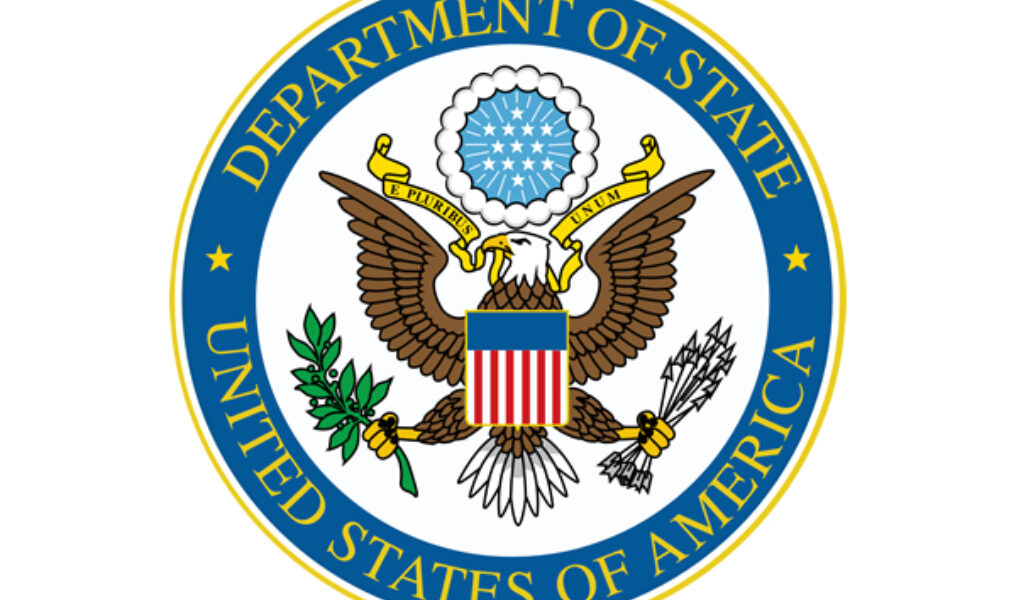The Commission on Unalienable Rights' 60-page report contains numerous references to the Universal Declaration of Human Rights and religious freedom. The report refers to marriage rights for same-sex couples, affirmative action and abortion as "divisive social and political controversies in the United States" and how "it is common for both sides to couch their claims in terms of basic rights."
"Indeed, it is a testament to the deep roots in the American spirit of our founding ideas about unalienable rights that our political debates continue to revolve around the concepts of individual freedom and human equality, even as we disagree — sometimes deeply," reads the report.
It does, however, criticize the U.N. Human Rights Council, which in recent years has championed LGBTQ rights, and other international institutions.
The Trump administration in 2018 withdrew from the council after what the report describes as "extensive efforts to work from within to reform" it. The report also notes China, Cuba, Russia, Saudi Arabia, Venezuela and other countries "that are themselves flagrant human rights abusers" have been members of the council.
"Charged with addressing human rights violations globally, the council gave greatly disproportionate attention to Israel while ignoring egregious human rights abuses in many other parts of the world," reads the report. "These outcomes are in part a function of programmatic bias in the UNHRC, and in the United Nations more broadly. The U.S. withdrawal from the UNHRC does not reflect a rejection of human rights and fundamental freedoms, but rather a determination to find better means of effectively securing them."
The report among other things, also says "new claims of rights must be carefully considered."
"With the passage of time, it is reasonable to expect a certain expansion and refinement of the list of recognized international human rights even as the essentials of freedom and human dignity remain constant," it reads. "The application of existing rights to persons from whom they have been wrongfully withheld is particularly to be welcomed. It must be kept in mind, however, that it was largely owing to the relative modesty of its reach that the UDHR (Universal Declaration of Human Rights) succeeded in launching the universal human rights project on a global scale. The UDHR was deliberately limited to a small set of rights on which there was perceived to be a near-universal consensus."
"The fact is that the power of the universal human rights idea is strongest when grounded in principles so widely accepted as to be beyond legitimate debate; it is weakest when it is employed in disputes among competing groups in society over political priorities," adds the report. "Such political disputes are usually best left up to resolution through ordinary democratic processes of bargaining, education, persuasion, compromise, and voting. The tendency to fight political battles with the vocabulary of human rights risks stifling the kind of robust discussion on which a vibrant democracy depends."
The report also says "the effort to shut down legitimate debate by recasting contestable policy preferences as fixed and unquestionable human rights imperatives promotes intolerance, impedes reconciliation, devalues core rights, and denies rights in the name of rights."
"In sum, the United States should be open to, but cautious in, endorsing new claims of human rights," it adds.
The report specifically refers to slavery, "the forceful displacement of native Americans from their ancestral lands; the discrimination against immigrants and other vulnerable minorities; and he imposition of legal liabilities on, and the withholding of opportunities from, women."
"Respect for unalienable rights requires forthright acknowledgement of not only where the United States has fallen short of its principles but also special recognition of the sin of slavery — an institution as old as human civilization and our nation's deepest violation of unalienable rights," it reads. "The legally protected and institutionally entrenched slavery that disfigured the United States at its birth reduced fellow human beings to property to be bought, sold, and used as a means for their owners' benefit."
Secretary of State Mike Pompeo on Thursday reiterated this point in a speech he delivered at the National Constitutional Center in Philadelphia.
"Now, it's true that at our nation's founding our country fell far short of securing the rights of all," he said. "The evil institution of slavery was our nation's gravest departure from these founding principles. We expelled Native Americans from their ancestral lands. And our foreign policy, too, has not always comported with the idea of sovereignty embedded in the core of our founding."
"But crucially — crucially — the nation's founding principles gave us a standard by which we could see the gravity of our failings and a political framework that gave us the tools to ultimately abolish slavery and enshrine into law equality without regard to race," he added.
The State Department released its report less than two months after George Floyd, who was Black, died after Derek Chauvin, a then-Minneapolis police officer who is white, kneeled on his neck for nearly nine minutes.
Floyd's death sparked a national protest movement against police brutality. It has also spurred a national reckoning on race in the U.S.
"The commission was never intended to time the release of this report to the current societal upheavals that are currently roiling our nation," said Pompeo in his speech. "Nevertheless, the report touches on this moment, and so will I, because today's unrest directly ties to our ability to put our founding principles at the core of what we do as Americans and as diplomats all across the world."
Pompeo specifically criticized the New York Times over its 1619 Project that examines slavery's legacy in the U.S.
"They want you to believe that America's institutions continue to reflect the country's acceptance of slavery at our founding," he said.
"They want you to believe that Marxist ideology that America is only the oppressors and the oppressed," added Pompeo. "The Chinese Communist Party must be gleeful when they see the New York Times spout this ideology."
Pompeo said "some people have taken these false doctrines to heart," specifically referring to "the rioters pulling down statues thus see nothing wrong with desecrating monuments to those who fought for our unalienable rights — from our founding to the present day."
"This is a dark vision of America's birth," said Pompeo. "I reject it. It's a disturbed reading of history. It is a slander on our great people. Nothing could be further from the truth of our founding and the rights about which this report speaks."

Report 'undermines human rights'
Pompeo last July announced the creation of the commission, which he said would stress "natural laws and natural rights." The announcement took place against the backdrop of continued criticism over the Trump administration's overall foreign policy and of the White House's anti-LGBTQ policies in the U.S.
Mary Ann Glendon, a professor at the Harvard Law School known for her opposition to marriage rights for same-sex couples, chairs the commission. Glendon introduced Pompeo at the National Constitution Center.
"For the commissioners over these past several months, it's been humbling as well as moving to see American flags in the hands of so many of the Hong Kong protesters," said Glendon in her introductory remarks. "And it was the fact for us that so many people in so many places count so much on the United States — yes, even in the ways that our country falls short of its own ideals, it was that fact that led us to our principal conclusion, which was that as a nation that came into being by affirming certain unalienable rights that belong to everyone everywhere, the United States must now rise to the challenges with the same energy and spirit that it brought to the building of a new international order in the post-World War period."
Advocacy groups in their sharp criticism of the commission noted, among other things, that Pompeo named Glendon as chair. Democracy Forward in March filed a federal lawsuit against the State Department over the commission on behalf of the Council for Global Equality, Robert F. Kennedy Human Rights, the Center for Health and Gender Equity (CHANGE) and the Global Justice Center.
"From day one, the Trump-Pence administration has been retreating from and undermining the global framework for human rights established in the Universal Declaration of Human Rights in 1948," said Human Rights Campaign Government Affairs Director David Stacy on Thursday in a statement. "As was clear from the start, Secretary Pompeo's Commission on Unalienable Rights was designed to challenge the international consensus with a narrow view of human rights, that among other things would leave LGBTQ people even more vulnerable to violence and discrimination."
OutRight Action International in a press release said the report "undermines human rights."
"The fundamental principle of human rights is universality — human rights belong to us all, regardless of religious denomination, gender, race, sexual orientation, or any other number of distinguishing features," said Maria Sj√∂din, the group's deputy executive director. "By using human rights language, the report claims to safeguard human rights, while in fact doing the opposite. It positions international human rights law as secondary to national legislation, elevates one human right over another, and equates 'unalienable rights' to 'natural law' and 'natural rights' — terms used to describe a social order which is often characterized by male-domination, subservience of women, racial inequality, and complete erasure of LGBTIQ people."
A senior State Department official on Thursday acknowledged criticisms of the commission when he spoke with reporters on a conference call.
"He commission was greeted with immediate and fierce criticism," said the official. "Contrary to what Secretary Pompeo said about the mandate, it was immediately said that Secretary Pompeo's secret purpose was to deny various groups their rights and radically elevate religious liberty."
"The report you will soon see bears no resemblance to the criticisms that have been leveled against the secretary or the commission," added the official.
The official noted to the Washington Blade the commission has thus far held five public meeting with public comment sections in each. The official also said there was an virtual public comment period that lasted nine months.
The official said in response to the Blade's question about whether the commission invited LGBTQ advocacy groups to participate in these meetings that it "has consulted all of the statements that have come in."
"It's far to say yes," said the official in reference to LGBTQ groups' participation in the meetings. "But we haven't, as far as I know, made specific invitations to this organization or that organization."
"We've given all organizations equally an opportunity to bring their opinions to us and we have studied all the opinions, all the statements, all the questions, all the criticisms that have come forward," added the official.
The State Department on Friday told the Blade the draft report that is currently posted to its website "will reflect any additional adjustments the commission may make in light of public comments" in roughly three weeks.
This article originally appeared in the Washington Blade and is made available in partnership with the National LGBT Media Association.










